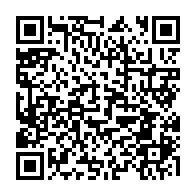Springhurst Avenue resident Andreas Aass has recently written a book that recounts his time teaching in Nanjing in 1986 and travelling throughout northern China. In light of the country’s dramatic growth over the past decades, his experiences in China came at an historic turning point – between Mao’s revolution and the economic powerhouse that Deng Xiao Ping unleashed. In this article, he explains how he came to find himself in China and how he has translated his memories of the journey into print.
Andreas Aass
For me, like most westerners, China was shrouded in mystery. Having lived and worked in three languages, my growing fascination with China in the 1980s led me to study Mandarin for three years under a tutor and to achieve a certain level of proficiency in the language – that of a three-year-old Chinese child, but enough to go shopping!
I set my sights on going to China in order to experience firsthand the object of my fascination. It would prove to be a life-changing event.
The year was 1986. China’s astonishing economic growth of the next several decades was incipient, and the country was rapidly opening up to the rest of the world. After millennia of separation, isolation and ignorance, a mutual openness between China and the rest of the world allowed for respect and understanding to develop.
Through personal and other contacts, I secured a post as a sessional lecturer at the Nanjing Institute of Technology – now renamed Southeastern University – and I was able to bring a group of third-year Carleton University architecture students along with me for a study abroad term.
The auspicious timing of my arrival, and my good fortune to observe firsthand China’s initial steps into the 20th century, were just two of several lucky breaks that I experienced.
Indeed, the mere fact that I was accepted as a university professor in China was a stroke of good luck. In the structure of China’s society, teachers are next to parents in a person’s life – the parents give life, the teacher provides the means of earning a living. My exalted status opened many doors for me that would otherwise have been closed. As a teacher, I was able to engage in a freer exchange of thoughts and facts: unlike a diplomat or a businessman, I was seen as a harmless seeker of knowledge, and not one seeking profit or political advantage.
Secondly, the Nanjing Institute of Technology was one of the five leading universities in China. As a result, the faculty boasted of leaders in many fields of study in China’s academic universe. Moreover, their contacts were unparalleled. For instance, in Beijing, I had the opportunity to chat with an architect, Jin Obu. In the years immediately after the 1949 revolution, he helped to nationalize the architectural profession, and in 1984, he was part of the team that privatized it.
On another occasion, I asked a Nanjing colleague about Ming dynasty villages, whereupon I was promptly introduced to the faculty member who had written the definitive text on the subject.
Finally, almost on a whim, I had brought a small voice recorder with me, and every night of my time in China, I dictated my experiences and thoughts of the day. This nightly exercise – more than 30 years later – resulted in my book, A Monkey in the Central Kingdom.
The book is divided into two parts: first, a tour of China, lasting several weeks, followed by our stay in Nanjing, lasting several months. A word about my approach to writing this book: I have purposefully downplayed almost all analyses and discussions regarding my personal fields of study: architecture, urban planning, and urban design. The reason for this – every time I wrote on these matters, my style became bureaucratic: dense, wordy, constipated. What I was aiming for was a book that would be informative and fun, and not a consultant’s report.
Finally – why the title? China’s name – Zhong Guo – means THE CENTRAL KINGDOM and reflects China’s historical arrogation to being the centre of the world. As for A MONKEY – simple enough, I was born under the sign of the monkey!
To purchase a copy of A Monkey in the Central Kingdom, contact Andreas Aass at carlos888@sympatico.ca.







